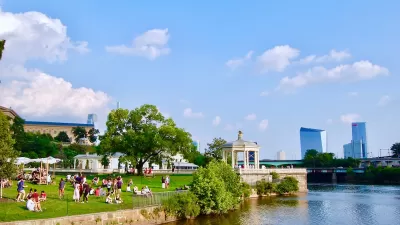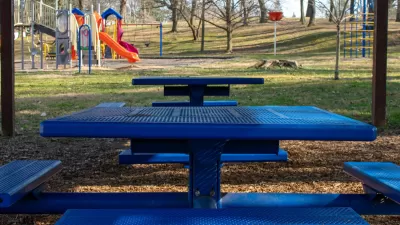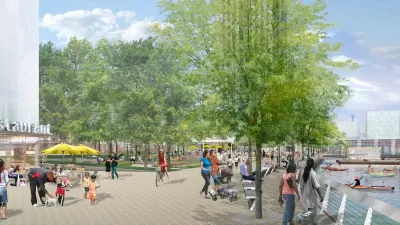Philadelphia spends $64 on parks and recreation facilities per resident, one of the lowest totals in the nation. Ryan Briggs uses the city as a lens to examine the growing impact of budget cuts to park systems on their surrounding communities.
After hundreds of residents campaigned for a year, the Philadelphia City Council approved a $2.67 million increase in funding for its Department of Parks and Recreation last November. "The funding increase is still far less than the additional $17 million a year that Mayor Michael Nutter said, while campaigning for his current office in 2007, was required for basic maintenance of the city’s park system alone," says Briggs; but as Lauren Bornfriend, director of the Philadelphia Parks Alliance said, it's "a start."
The problem, continues Briggs, is that "[e]veryone loves the idea of parks and rec centers, but no one likes actually paying for them. Parks and Recreation services have long been whipping boys of city councils and municipal budget-makers across the country, with funding cuts being less politically charged than those to emergency services and less immediately noticeable than, say, libraries. With long-standing national and global economic uncertainty eating into municipal revenues, cuts to park budgets have become more frequent and pronounced." The lack of funding results in decay that disproportionately affects lower-income neighborhoods and decreases the health of surrounding communities.
The Rec Department proposes that "maintenance costs to existing parkland and rec centers can be partially deferred by institutionalizing the process of organizing so-called 'Friends' groups for recreation facilities across the city," says Briggs, but "such organizations are far more likely to appear in well-to-do areas, where there are more private dollars floating around to make up the difference." Deputy Mayor of Environmental and Community Resources Michael DiBerardinis "believes the Rec Department can help set up additional groups in neighborhoods that are rich in volunteers but short on cash."
Whatever the solution, or combination of them, it's clear that in lean budgetary times, "citizen activism is crucial to securing equitable funding for parks."
FULL STORY: Everyone Loves Parks, But No One Wants to Pay For Them

Alabama: Trump Terminates Settlements for Black Communities Harmed By Raw Sewage
Trump deemed the landmark civil rights agreement “illegal DEI and environmental justice policy.”

Study: Maui’s Plan to Convert Vacation Rentals to Long-Term Housing Could Cause Nearly $1 Billion Economic Loss
The plan would reduce visitor accommodation by 25% resulting in 1,900 jobs lost.

Why Should We Subsidize Public Transportation?
Many public transit agencies face financial stress due to rising costs, declining fare revenue, and declining subsidies. Transit advocates must provide a strong business case for increasing public transit funding.

Paris Bike Boom Leads to Steep Drop in Air Pollution
The French city’s air quality has improved dramatically in the past 20 years, coinciding with a growth in cycling.

Why Housing Costs More to Build in California Than in Texas
Hard costs like labor and materials combined with ‘soft’ costs such as permitting make building in the San Francisco Bay Area almost three times as costly as in Texas cities.

San Diego County Sees a Rise in Urban Coyotes
San Diego County experiences a rise in urban coyotes, as sightings become prevalent throughout its urban neighbourhoods and surrounding areas.
Urban Design for Planners 1: Software Tools
This six-course series explores essential urban design concepts using open source software and equips planners with the tools they need to participate fully in the urban design process.
Planning for Universal Design
Learn the tools for implementing Universal Design in planning regulations.
Smith Gee Studio
Alamo Area Metropolitan Planning Organization
City of Santa Clarita
Institute for Housing and Urban Development Studies (IHS)
City of Grandview
Harvard GSD Executive Education
Toledo-Lucas County Plan Commissions
Salt Lake City
NYU Wagner Graduate School of Public Service





























